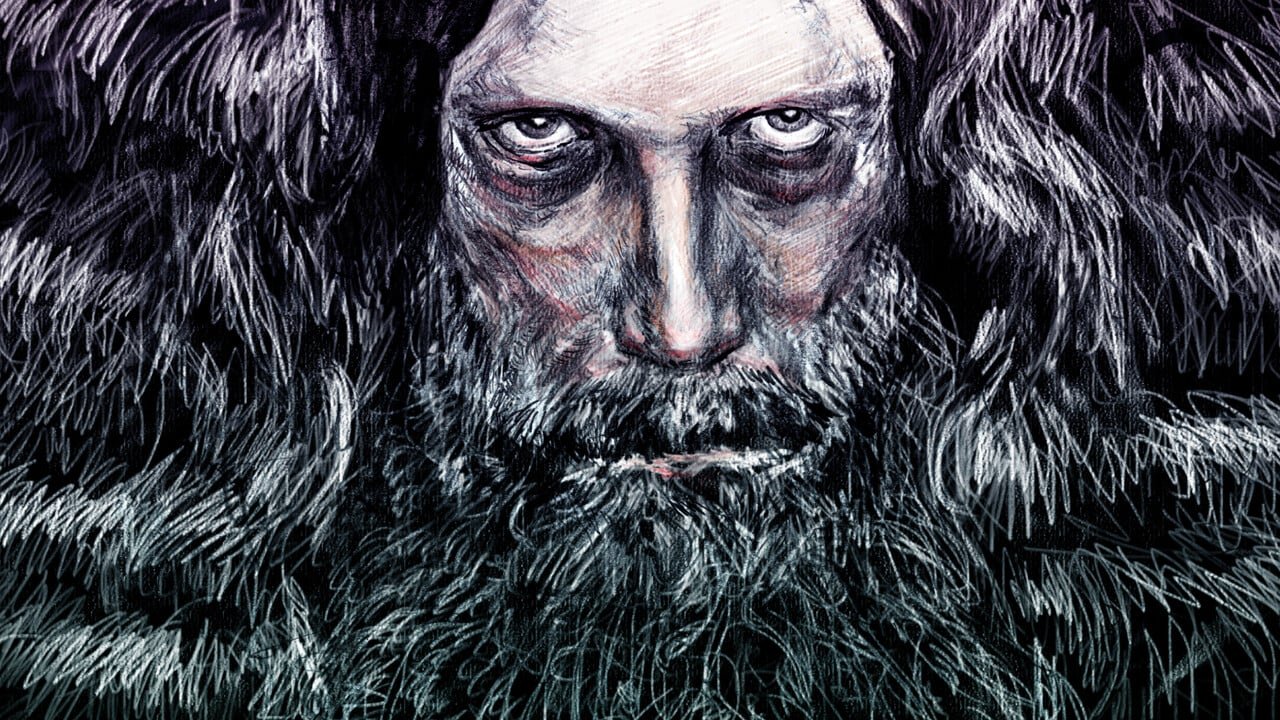Lance Parkin’s gorgeously designed Alan Moore biography comes with a rare treat in the world of Moore paraphernalia: not one, but two flippant/adoring quotes of approval from its subject. Granted that’s not particularly rare in the world of biographies, but in the world of Alan Moore it’s practically unheard of. This is an artist who rarely speaks his mind about anything connected to him, unless it’s to scorn and mock the work of someone else who dares to create something connected to his genius. As you might expect, that means that Parkin’s Magic Words is an adoring tome about all things Alan Moore. This isn’t the first time that Parkin has written about the bearded comic book guru, and it likely won’t be the last. So, it’s safe to say that Parkin is a tremendous admirer of Moore who doesn’t have much in the way of negative things to say about the writer or his work. That doesn’t make for the most objective or complex book about Alan Moore imaginable, but thankfully Parkin’s adoration for his subject is absolutely infectious and chances are that by the time you’re done the book you’ll want to bust out our old Alan Moore trades for a re-read or even sample some of the more obscure sections of his career that Parkin covers in detail here.

The book itself is part biography and part analysis, structured as a chronological study of Moore’s life. All of the obvious ground is covered, from Moore’s middle class English upbringing to his brief dalliance in cartooning before breaking into British comics after years of struggle. The bulk of the book is dedicated to Moore’s groundbreaking work at DC and beyond with healthy portions allotted to the creation of Watchmen, Marvelman, V For Vendetta, The League Of Extraordinary Gentlemen, From Hell, Lost Girls and more (or Moore… please forgive the pun). Parkin weaves together the story with heaping spoonfuls of quotes from Moore taken from vintage interviews with the writer as well as new insights that Parkin got from current interviews after his unauthorized biography became unexpectedly authorized. Parkin also gets input from a few of Moore’s collaborators, both those who love him like Eddie Campbell and spurned former artistic lovers like Warrior editor Dez Skinn. What emerges is the tale of a difficult yet undeniably ingenious artist. Parkin never skips details on Moore’s (at times) irrational sense of bitterness and entitlement within the comics industry, nor does he gloss over Moore’s unconventional lifestyle choices like polygamy and magic. However, he never slings mud either, always defending Moore or at least trying to come to a point of understanding about his complex subject.
At worst, it can feel like a bit of editorial whitewashing, but at best Parkin gets into some intriguing analysis of some of the biggest mysteries surrounding the comics legend. In particular, Parkin’s recounting and examination of Moore’s time as a magician is quite fascinating. The author is quick to acknowledge that Moore’s psychedelic drug intake and desire to reinvent himself played a large role in that bizarre period while also delving into the philosophies behind Moore’s magic fascination than runs deeper than a David Copperfield act. Better still is Parkin’s running analysis of all of Moore’s major works amidst the biographical details. The author has clearly read and studied these works a great deal and provides plenty of intriguing insights like the often ignored satirical black comedy of Watchmen (particularly Rorschach), the overlooked political brilliance of Moore’s unfinished Big Numbers, the surprisingly intellectual content behind the sensationalistic/pornographic Lost Girls, and he even gets into thoughtful analysis of why the Hollywood adaptation of Moore’s work have failed so thoroughly (too often these arguments are limited to “because they changed Moore’s brilliant writing,” so it’s nice to hear from someone who put a little more thought into it). Throughout it all, Parkin writes in a clever and even playful style that mimics his subject’s mix of high-brow ideas and guttural entertainment.

While there are books with deeper textual analysis of Moore’s work and more balanced biographies out there, Lance Parkin’s Magic Words feels like the definitive Alan Moore study because it provides a little bit of everything and does it all well. For what it’s worth the physical book itself is also gorgeously designed with an intriguing/hilarious cover image of Moore smoking a mysterious substance and very pretty, durable black pages. It’s a wonderful piece of work for Alan Moore aficionados that also doubles as a fascinating introduction of the man, myth, and legend for those somehow unfamiliar with the subject. It’s inevitable that more Moore books will be published and perhaps future tomes will be more intriguing or balanced, but for now this is the finest study of Alan Moore’s life and work currently on the market. Definitely pick it up for the comic book obsessive in your life (or for yourself, you count too).





